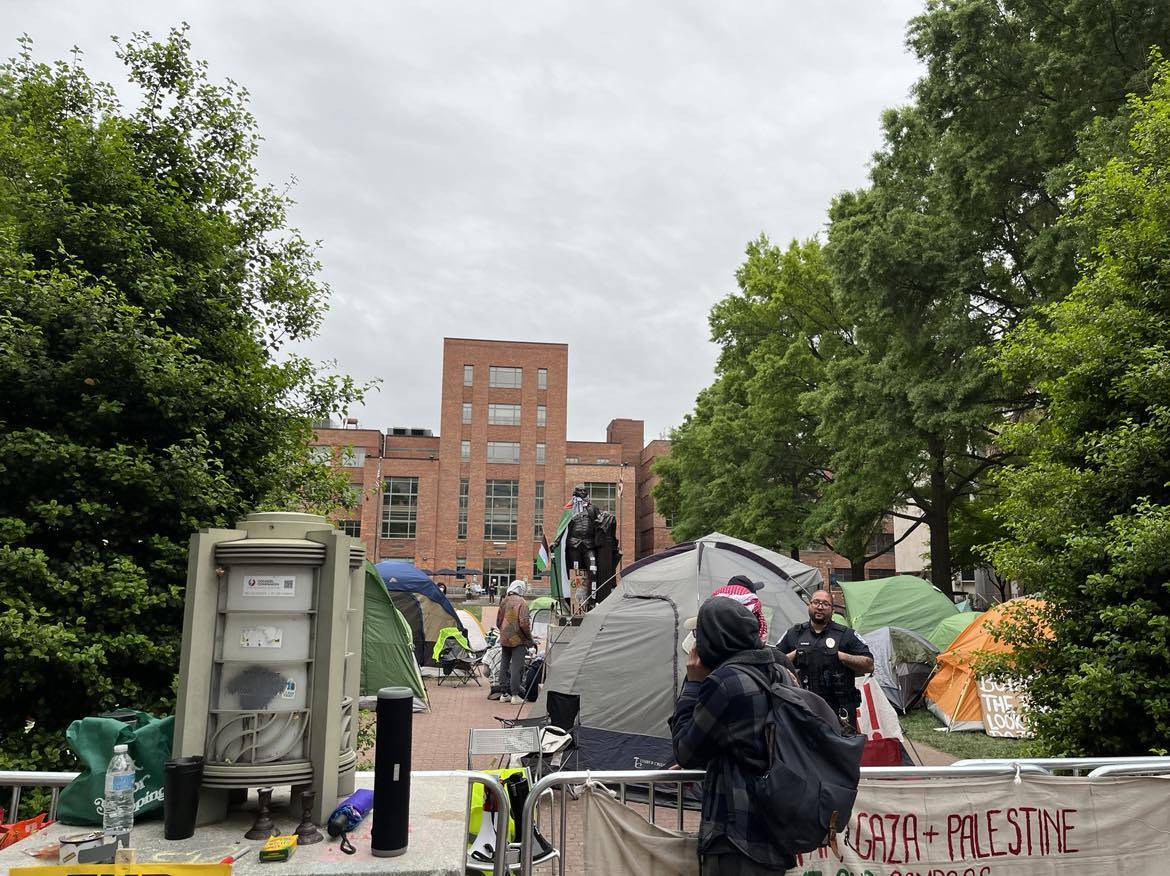London private renters consider the following luxury items in 2024: paying less than £1000 a month for a room in a houseshare with three others, staying in the same house for more than two years, handing over less than three-quarters of your wages to a landlord, and having a working boiler.
I’ve lived in this city for 24 years. My first home was a single room in a flatshare above a chip shop in Gospel Oak, North London, for which I paid £300 a month, bills included. My room could fit a single bed and a small wardrobe. That’s it. It was grim, but I was young and childless, and that was all I could afford, working in shops and taking care of the children of the rich.
A few years later, now a parent myself, I was still renting and struggling to cover bills and childcare, but I just carried on. As a migrant without a community, I had no one to tell me how to enter the welfare system or get on the council list. Crying at my son’s nursery office because I couldn’t afford even the most subsidised fees on my part time income, was probably one of my lowest points ever.
Unlike many of my peers, I never managed to get out of the rent trap. My parents couldn’t help with a deposit, and no rich aunt had ever left me any property. 24 years on, having saved my pennies towards one day living in secure housing, I learned that I’m not eligible for a mortgage despite my slightly above-average salary. It didn’t matter how hard I worked or how much I saved – like so many other folks who don’t come from money, I was trapped in an increasingly precarious state.
And I wasn’t alone. Since I arrived in London in 2000, the number of households renting in the UK has increased from 2 million to 4.6 million in 2023. Over a third of those, like mine, have children. In 2020, nearly a million private renters (956,000, to be precise) told the English Housing Survey that they had lived in their current homes for less than a year. And not by choice: for 65% of private renters, the most common reason for moving home is being asked to leave because their landlord wants to sell the property or increase the rent.
But it can be anything, really. Gordon Peden, who has been renting a flat since 2019, was recently informed by his landlord’s agent that he’s got ‘too many books’, which she found to be ‘a bit weird’. When he objected to the suggestion that he was a hoarder, the landlord simply presented him with an eviction letter. He joined the 172 households a day who, according to Shelter, are served a Section 21 ‘no-fault’ eviction notice (or almost 300 Londoners a week, according to the Mayor of London’s office).
With no legal protections and no chance to secure our own place, we move on in an endless cycle of packing and unpacking.
This grim reality is not merely due to a lack of funds. In 2019-20, the Ministry of Housing, Communities & Local Government, reported that over three quarters of private renters were working, either full-time (67%) or part-time (10%). But what happens to all our money?
According to a report by the Organisation for Economic Cooperation and Development, almost a quarter (23%) of private renters in the UK spend 40% or more of our income on housing (while social tenants spend around 30%). Infuriatingly, this percentage rises significantly the less you earn, with 35% of low-income households in London saying that they struggle to pay rent.
Estate Agents Benham & Reeves report that the average London household now pays £2,840 each month on rent and basic living costs, around 72% of total income. So where does the money go?
In 2023, 2.82 million individual landlords (or one in every 21 adults in the UK, according to the Guardian) made a total income of £85.6 billion (an increase from the previous year’s £77.6 billion). Some are professional landlords who have accumulated hundreds of buy-to-let properties.
Others simply lucked out (granny died and left them a flat, they married another homeowner and kept both houses, they were able to buy when prices were low and the neighbourhood was still a bit shit) and decided that keeping a property they don’t need and living off other people’s income was a viable way to make a living in a housing crisis.
Some of these may be considered ‘nice’ landlords, fixing the boiler and not increasing rent above what they believe to be ‘fair’. Others, like the landlady who attacked me and my housemate last July with sticks and rocks for not paying the rent on time, are deranged and dangerous. We all have a story about an evil landlord, of cold, damp flats, of no-fault evictions… but this is not personal: The entire system is designed to transfer wealth from the hands of workers into the pockets of landlords and ensure that millions of us compete over a dwindling stock of overpriced, badly maintained and often dangerous homes.
This wasn’t always the case. In a recent Guardian article, Nick Bano noted that the population of London hasn’t changed much in 70 years, so the reason for the current situation isn’t a huge increase in demand. “What has changed for the worse is not the amount of housing per household, but its cost. And cost, in turn, has a great deal to do with the landlordism that is at the heart of the present crisis”. According to Bano, by the late 1980s, London landlords were becoming a disappearing phenomenon, driven out of business by mass municipalisation projects, council house building and an increase in home ownership. But all this progress was undone in the following years. Under Thatcher and her successors, local authorities were forced to allow tenants to buy their homes at subsidised prices and prevented them from building new social housing. Lack of resources, imagination, or political will stop current councils from investing in new public building projects or handing them to commercial developers, who always prioritise private sales over social units. Nowadays, it is easier to secure a buy-to-let mortgage than a loan for a house to live in and raise a family in. This is not, however, a natural force of the market, as the Tories and their helpers would have us think. It’s driven by policy and designed to keep profit flowing from the poor to the rich.

As economist Gary Stevenson wrote last month: “The budget is a piece of theatre meant for your consumption. It is a cute moment – a photogenic moment where a multimillionaire can hold up a red box and bribe you with a bit of your money while they and all the other multimillionaires bankrupt the government with monetary and fiscal stimulus packages that seem somehow to always end up in their own pockets. They then use that money to buy assets such as all the houses your children will need but never be able to afford”.
But there are alternatives.
Introducing rent caps, a massive public investment in social housing, a stop to no fault evictions and prosecuting the rogue landlords are all effective solutions that will require mass tenant organising and a significant political shift.
Another option is to try to remove as many homes as possible from the clutches of private landlords. By definition, landlords have all the assets, power and influence, while we, seemingly, only have the power of our labour. But we also have each other and can collectively build structures to develop long-term secure housing in our communities. I am talking, of course, about housing cooperatives.
Housing co-ops are mutual organisations that meet their members’ housing needs according to cooperative principles. Individual co-op members don’t personally own the homes they live in – instead, they collectively own the co-op, which owns the home. The members are, effectively, both landlords and tenants.
With no one externally making a profit through extraction, all the (truly affordable) rent can be invested back into the co-op. When the accumulated value of rent surpasses the co-op’s liabilities (loans and reserves), the co-op can expand, buy new properties and house more members.
There are over 300 housing co-ops in London, ranging from a few households to thousands of tenants, living in large blocks of flats, in regular terraced houses and, sometimes, occupying whole streets.
Many housing co-ops were established in the 1970s and 80s, some from existing squats, others as new initiatives responding to members’ needs. At the time, they benefited from extremely affordable properties and generous grants. They paid off their liabilities and are currently accumulating rent, many without any expansion plans.
New and emergent housing co-ops buy their homes using funds from different sources, including contributions from members and supporters and loanstocks from investors (a particular type of loan that is paid back in full at the end of an agreed period, with any interest paid to the lender annually). Co-ops that are members of Radical Routes, an autonomous umbrella organisation founded on the principle of mutual aid between co-ops, can qualify for loans from the network, alongside other support from the community of members co-ops. But those sources are limited, and, given the current excruciating housing costs, funds are hard to come by. So, in addition, almost all new and expanding co-ops must apply for commercial mortgages, often ending up paying huge sums in interest to the banks.
Recently, a new idea has begun to take shape based on Principle Six: Cooperation amongst Cooperatives. What if all the borrowing and lending could take place between emerging and established co-ops, with all the interest remaining within the co-op movement?
The lending co-op will benefit from a steady interest payment on its investment above the rate currently offered by banks on savings accounts, while small co-ops will benefit from access to finances on better terms than a bank mortgage. All the interest will remain within the co-op movement, enabling co-ops to grow and house even more new members.
My housing co-op, Mary Ann Johnson, together with members of CASH, is working to develop this initiative and explore how it could benefit co-ops across the movement.
Mary Ann Johnson Housing Cooperative (MAJ) was established in the 1990s by a group of Haringey anarchists who were active around a range of issues – from housing to trade unions migrants rights to organising a well-known anarchist bookfair. MAJ is one of several particularly active housing co-ops at a time when some of the more established co-ops have abandoned their politics and activism. We proactively support groups wanting to start their own housing co-ops through our involvement in Radical Routes and through public events (for example in the workshop How & Why to set up a Housing Co-op, as part of the Antiuniversity on 4 May). MAJ members are always happy to answer questions and share resources. Have a co-op related question? Get in touch via our website!
I joined MAJ recently as the co-op’s seventh member (together with my son) at a time when the co-op is expanding and raising funds to purchase its fourth property (which will house us).
MAJ had already accumulated around £100K through members’ rent (above its liabilities and loanstock), and, as before, we asked our community, our friends and families and our comrades from across the movement to help us raise the rest of the money. Since January 2024, we’ve secured over £150K in loans and donations, but we are still around £100K from our initial target.
To raise the remaining funds, we set up a JustGiving crowdfunder page for smaller cash donations (every little helps!), released loanstock on the MAJ website (you will get your money back!), and even organised two comedy nights at the Jago in east London (the next one is on Wednesday, 24 April. Come along, it will be jokes!). But the real challenge is to unlock and keep the vast wealth within the housing co-op movement.
So, if you live in one of the large established housing co-ops, please reach out to fellow members and explain the benefits of sharing some of the wealth within the movement. If you have access to generational wealth or resources to share, please give them to an expanding housing co-op or become a Radical Routes investor.
Together, we can build power in our class and our community, remove more houses from parasitic landlords and care for each other.
As the authors of the 2017 Co-ops for London report said: “We know co-ops are not the only solution to London’s housing crisis. More social housing is the real key. But housing co-ops can support council housing and ensure London can offer a diverse range of housing provision for a diverse city”.
Or like my friend Gordon’s mum, a tiny but fierce Glaswegian woman, said: “Take a big chunk out of the capitalist neck”! Help us make this a reality.
~ Shiri Shalmy








